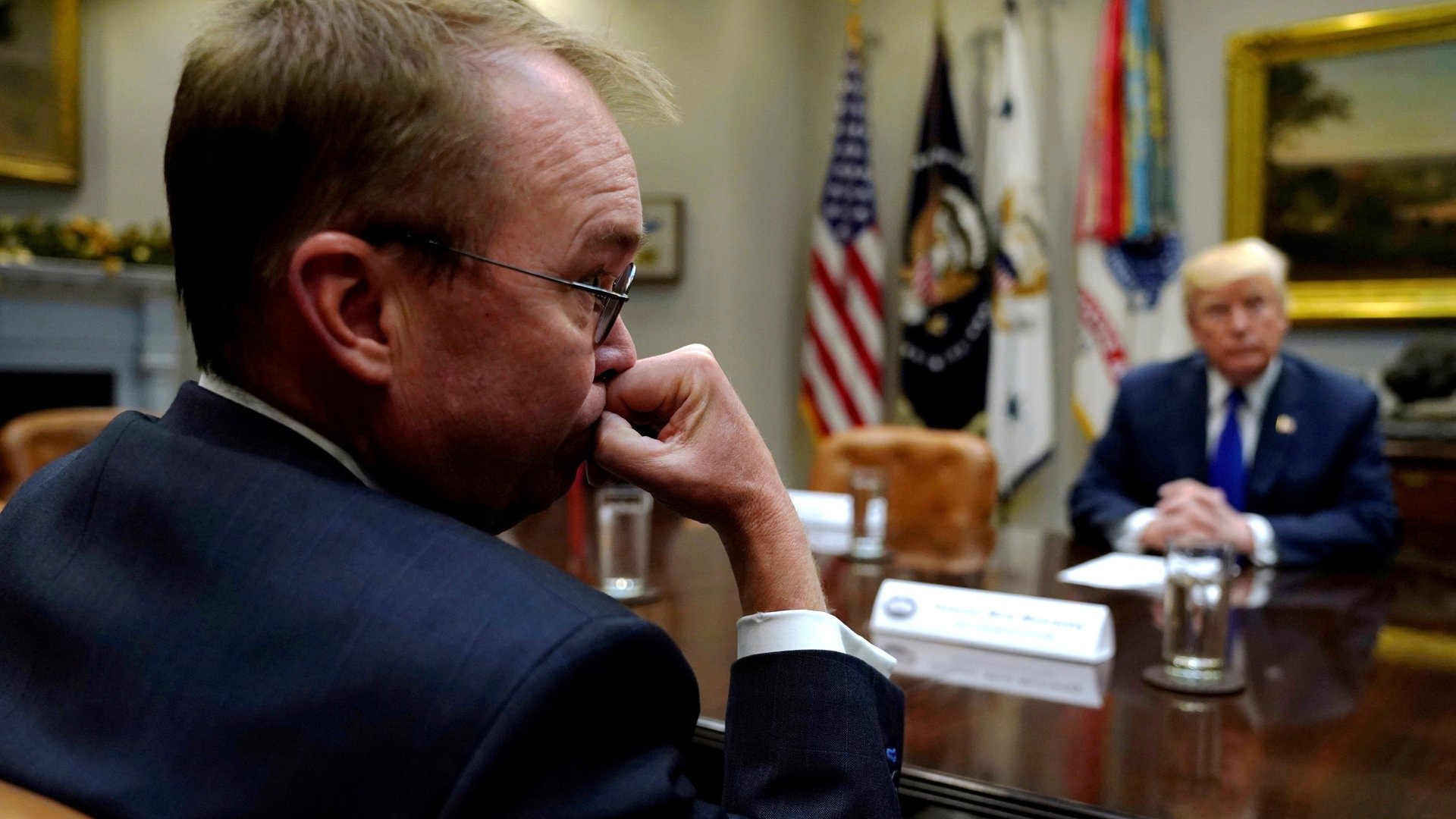Trump’s student loan watchdog says the US “has turned its back on young people”
Seth Frotman, student loan ombudsman at the Consumer Financial Protection Bureau (CFPB), resigned his position in protest today. His cause? An education debt crisis that has left 40 million Americans owing some $1.5 trillion in student loans.


Seth Frotman, student loan ombudsman at the Consumer Financial Protection Bureau (CFPB), resigned his position in protest today. His cause? An education debt crisis that has left 40 million Americans owing some $1.5 trillion in student loans.
In a scathing resignation letter obtained by NPR, Frotman told acting bureau director Mick Mulvaney that the CFPB has “turned its back on young people and their financial futures.” Frotman will leave the position he’s held since 2016 at the end of the week because, he says, the bureau isn’t fulfilling its stated mission to protect borrowers from unfair, deceptive, and abusive financial practices. Frotman’s letter states:
Unfortunately, under your leadership, the Bureau has abandoned the very consumers it is tasked by Congress with protecting. Instead, you have used the Bureau to serve the wishes of the most powerful financial companies in America.
The ombudsman’s office was established along with the CFPB itself in 2011, and is responsible for investigating complaints about predatory education lenders and initiating enforcement activities. To date, it has recovered $750 million for wronged borrowers. Its creation was prompted by the financial crisis of 2007, when consumer-loan default rates rose dramatically and it became apparent that lenders had acted irresponsibly in extending credit. According to the CFPB’s website, the bureau is focused on “one goal: watching out for American consumers in the market for consumer financial products and services.”
Education debt is currently the second highest category of consumer credit in the US, after credit cards. Based on the most recent trends, it seems likely that by 2023, about 40% of borrowers may default on their student loans, amounting to about $560 billion in unpaid debt. In January, Judith Scott-Clayton of Columbia University’s Teachers College wrote in a Brookings Institute report that “the looming student loan default rise is worse than we thought.”
At a congressional hearing in March, Federal Reserve Chairman Jerome Powell warned policymakers that rising default rates will impact the US economy. “As this goes on and as student loans continue to grow and become larger and larger, then it absolutely could hold back growth,” he told lawmakers. Rising tuition rates mean students are borrowing more and more money, which means it’s taking longer to pay back loans and makes it more likely that borrowers will default.
Under Mulvaney’s direction, the student loan ombudsman’s office has scaled back enforcement activities. In May, the student-loan unit was even folded into the consumer-information unit (paywall), making the ombudsman more of a consumer educator than an investigative arm.
In January, Mulvaney wrote a memo to CFPB employees outlining his view of the bureau’s role. He didn’t want the agency to act like a “cop on the beat” or “push the envelope.” Instead, he’d treat lenders gently. As Gillian White explained in the Atlantic, “Mulvaney has cemented the Trump administration’s vision of the CFPB: a smaller, quieter, and less active financial regulator—one that looks a lot more like the regulators of the pre-recession era.”
Frotman apparently couldn’t stand it anymore. Reads his letter to Mulvaney: “The damage you have done to the bureau…sacrifices the financial futures of millions of Americans in communities across the country.”